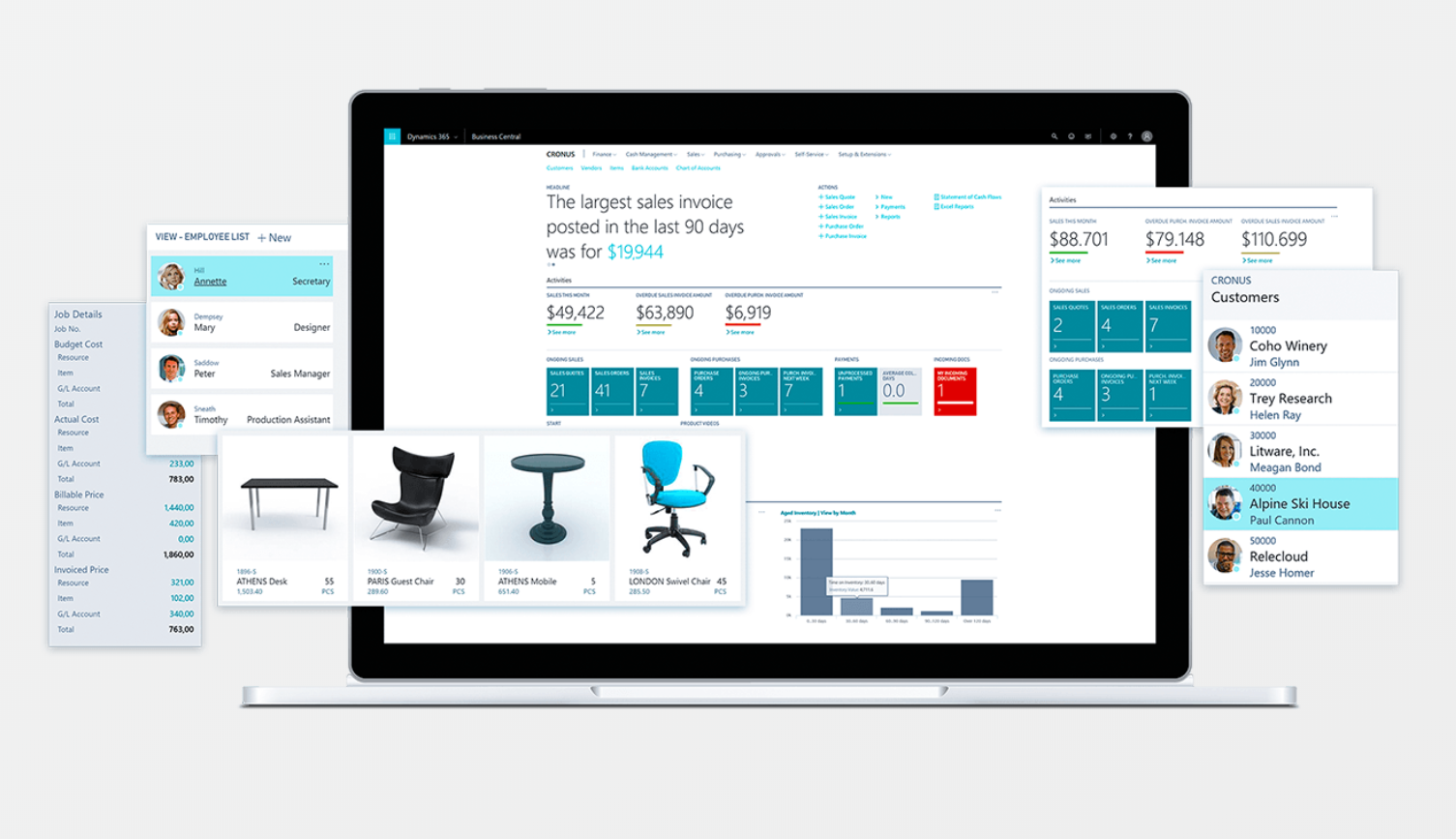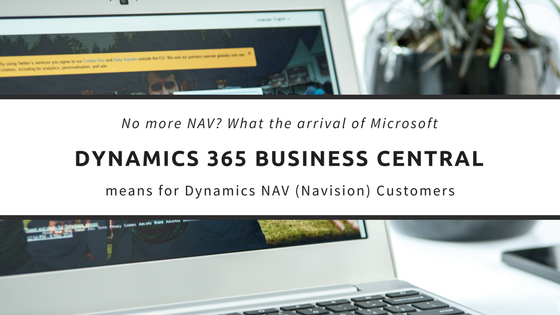Microsoft Dynamics NAV 2018, the last version of NAV, finally reached the end of its Mainstream Support Phase in 10 January 2023. If you're using NAV for your company, you should know that Microsoft no longer provides mainstream support for any version of Dynamics NAV.
Instead, your ERP software has likely entered Microsoft's last phase known as Extended Support.
In this blog post, we’ll take a look at the implications for your business, and questions like:
- What Was Covered Under Mainstream Support?
- What Does It Mean If My Dynamics NAV Is Under Extended Support?
- What if I'm using older Dynamics NAV versions (e.g. 2017, 2013 etc)?
- Can I Get A Discount For Upgrading from NAV To Business Central?
What is Microsoft's Mainstream Support?
Most software products come with what's called a Fixed Lifecycle Policy. It's designed to provide you with a clear understanding of how long support and service will be available for these products. It provides:
- A clearly defined timeline for support and servicing throughout the lifecycle of the product, established at the time of its launch
- Usually for at least the first five years, you'll receive what's called 'Mainstream Support'.
- Some products go beyond that and offer an additional period of support called 'Extended Support'
Under Microsoft's Mainstream Support phase, you'd get security patches, and regular non-security hotfixes to address bugs and enhance functionality in Dynamics NAV. There's also the ability to request for non-security updates like design changes and features in future updates.
What is Microsoft's Extended Support?
Under Extended Support, Microsoft will only provide critical security updates for your instance of NAV at no additional cost for another five years. This has the following implications for your business;
- No More Non-security Updates: Apart from security updates to address newly-discovered vulnerabilities, Microsoft will no longer release updates that bring new features or design changes
- No More Regulatory Or Localisation Fixes: Microsoft will also no longer release any updates which will update your instance of NAV with any required statutory changes or localisations. This can potentially put your SME at risk, as it’s that much harder to maintain compliance with the latest regulations without such updates to your ERP software.
Once you go past this Extended Support phase, you will no longer receive security updates.
What If I'm Using A NAV Version Older Than Dynamics NAV 2018?
It means that your instance of NAV might not just have left Mainstream Support, but it may also no longer be under the Extended Support phase instead. Refer to the table below to see whether your instance of Dynamics NAV is still under Extended Support;
| Product | Start Date | End of Mainstream Support | End of Extended Support |
| Dynamics NAV 2009 R2 | 15 March 2011 | 13 January 2015 | 14 January 2020 |
| Dynamics NAV 2013 | 19 December 2012 | 1 September 2018 | 10 January 2023 |
| Dynamics NAV 2013 R2 | 30 December 2012 | 1 September 2018 | 10 January 2023 |
| Dynamics NAV 2015 | 17 December 2014 | 14 January 2020 | 14 January 2025 |
| Dynamics NAV 2016 | 3 January 2016 | 13 April 2021 | 14 April 2026 |
| Dynamics NAV 2017 | 27 October 2016 | 11 January 2022 | 11 January 2027 |
| Dynamics NAV 2018 | 1 December 2017 | 10 January 2023 | 11 January 2028 |
As you can see, depending on which version of NAV your business is currently using, Microsoft may no longer be supporting your ERP software even under Extended Support.
Why Should You Upgrade To Business Central?
The end of Mainstream Support for Dynamics NAV 2018 signals the need for SME owners like yourself to consider upgrading to a modern ERP software.
And the obvious choice is to upgrade to Microsoft Dynamics 365 Business Central. Here's why;
Continued Innovation and Support
Microsoft Dynamics 365 Business Central is the next generation of Dynamics NAV, offering a cloud-based, all-in-one business management solution tailored for SMEs. By upgrading, you gain access to ongoing product updates, new features, and security enhancements.
Microsoft remains committed to supporting and advancing Business Central, ensuring that your business stays up-to-date and competitive.
Seamless Transition
Upgrading to Microsoft Dynamics 365 Business Central from Dynamics NAV 2018 is a streamlined process, thanks to Microsoft's migration tools and resources.
The transition allows you to carry over your existing data, configurations, and customisations, ensuring minimal disruption to your business operations.
Cloud Benefits
Business Central operates in the cloud, providing increased scalability, flexibility, and accessibility. Cloud-based ERP solutions offer enhanced collaboration, real-time insights, and the ability to access critical business information from anywhere, on any device.
These advantages empower SMEs like yours to adapt quickly to changing market dynamics and make data-driven decisions.
Extended Support Lifecycles
Microsoft supported NAV under the Fixed Lifecycle Policy, which offered only 5 years of Mainstream Support, and 5 years of Extended Support. This meant that with NAV, you always had to consider replacing your ERP software with a newer version every 10 years.
However, Business Central is covered by Microsoft’s Modern Lifecycle Policy. This means that Microsoft will continue to support the cloud-based ERP software indefinitely.
Not only does this mean you’ll get regular service updates as well as major updates every six months, it also means you’ll never have to spend your budget on upgrading your ERP software ever again.
It’s Time To Leave NAV Behind And Upgrade To Business Central
With the end of Mainstream Support for Microsoft Dynamics NAV 2018, the newest and final version of the classic Microsoft on-premise ERP software for SMEs, you need to be aware of the implications of keeping your business reliant on NAV to manage its operations.
And if you want to continue receiving important updates for your business’ ERP software, your best bet is to upgrade to a modern cloud solution.
Microsoft Dynamics 365 Business Central is the obvious choice, since it gives you the same user experience while providing your business with ongoing innovation, comprehensive support, enhanced security, and the benefits of cloud-based operations.
As an award-winning Microsoft Dynamics partner in Singapore for more than a decade, as well as a PSG pre-approved vendor for Business Central, we at AFON IT Pte Ltd are well-positioned to help you make the transition from NAV to Business Central, should you wish to take that step.
What's more, Microsoft is now offering Dynamics NAV customers a limited-time discount for migrating to the Cloud-based Business Central.
If you'd like to find out more about this promotion, get in touch with us here or give us a call at +65 6323 0901, and our consultants will get back to you soon.
Otherwise, if you’d like to know more about how Business Central can do for your business, click on the image below to download our free copy of the factsheet for Microsoft’s cloud ERP software for SMEs like yours.




